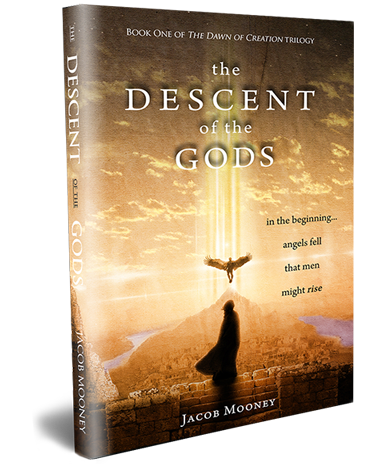Explore Genesis 6:1-4 through the lens of Shari Abbott, founder of Reasons for Hope Jesus.

Introduction
Shari Abbott is a Biblical apologist and the Founder and President of Reasons for Hope Jesus. With eleven books to her name, she presents her own views of scripture to bring clarity to complex narratives.
Abbott’s article, “Why are Christians Called Sons of God and What About the Sons of God in Genesis 6?” dives straight into the heart of the matter. The phrase “sons of God,” she notes, takes on different meanings across the Old and New Testaments. Regardless, she believes that they were actually angels who married human women.
Looking at Genesis 6:1-4
Abbott zooms in on Genesis 6:1-4, where the term “sons of God” refers to a group who intermarried with human women. She evaluates three interpretations:
- The Sons of Seth: This interpretation is based on the idea that Seth’s descendants were considered godly people. However, there is no biblical support for this interpretation. Abbott notes that nowhere in the Old Testament is this term used to describe human descendants.
- Kings or Rulers: This interpretation suggests that kings or rulers, seen as divinely appointed, were the “sons of God.” However, Abbott finds no significant biblical support for this view.
- Fallen Angels: Abbott finds this interpretation the most credible, though also controversial. The idea is supported by the notion that “sons of God” (Hebrew: bene Elohim) can imply beings directly created by God, which includes angels.
Sons of God: Direct Creations of God
Abbott explains that in the Old Testament, the term “sons of God” refers to beings directly created by God. This includes angels, Adam, and, by extension, Christians who are seen as new creations in Christ. She argues that since Seth’s descendants, kings, and rulers were not direct creations of God, they could not be referred to as “sons of God.”
“Seth’s descendants were not born of God as Christians are. Nor were any kings or rulers born of God. They also were not adopted into God’s family, since we know that relationship comes only through Jesus. So there is no reason why the sons of Seth would have been referred to as ‘sons of God.’ This eliminates both sons of Seth and kings or rulers as possibilities of who the Genesis 6 sons of God were.”
Abbott further supports this by noting that angels are called “sons of God” in the book of Job (Job 1:6, 2:1, 38:7) and that Adam is called the son of God in Luke 3:38. Angels, including fallen angels, were direct creations of God and at one time served Him in Heaven.
Learning from Ancient Wisdom
Abbott concludes that the most reasonable interpretation is that the Nephilim were born out of intermarriages between angels and humans. Although she acknowledges other perspectives, she finds the angelic interpretation most consistent with biblical references and hermeneutical principles.
“For further support, remember that angels also are a direct creation of God. Adam is called the son of God (Luke 3:38). Adam is the only human being created from nothing by God. Every person since Adam has been born of a human parent.”
Conclusion
In summary, while there is no definitive answer to who the “sons of God” were in Genesis 6, Shari Abbott finds the fallen angel interpretation the most credible. Her view is grounded in a thorough examination of the term “sons of God” across the Old and New Testaments and a commitment to sound hermeneutical principles.
For those eager to delve deeper into this narrative, visit Chasing the Giants and explore a library of ancient and modern resources about the mysteries of the Nephilim. Read Shari Abbott’s article titled “Why are Christians Called Sons of God and What About the Sons of God in Genesis 6?” on Reasons for Hope Jesus.







